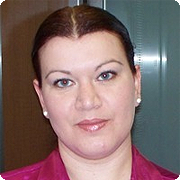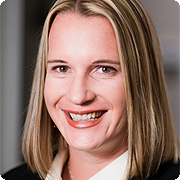As promised, I have one last interview I wanted to share with you. I had the opportunity to ask my questions to the lovely Konstantina Drakou! Konstantina is a freelance translator and proofreader working with EN/DE/SV>GR, but she also provides interpreting services. She specializes in IT, tourism, fashion, legal, medical and business documents. When she’s not translating, you can find Konstantina blogging at Wordyrama. Let’s hear it from her!
Hello, Konstantina! Could you start by telling us a little bit about yourself?
Hello, Emeline! Let me begin by saying a big “Thank you!” to you for inviting me to take part in this wonderful activity! It is such a fantastic idea, well-done!
Before I got into the translation industry, I lived in the UK for a total of ten years (I completed my studies there) and then I worked for two blue chip multilingual companies (IBM and ExxonMobil) in the UK. After getting exposed to different terminology fields, I decided to set up my freelance translation business in Crete, Greece and I have been working as a freelancer ever since (I work form English/German/ Swedish into Greek). I also hold a part-time post at the Foundation for Research and Technology (Institute of Computer Science) so that I get as close to IT (a field of great interest to me!) as possible! You may find more interesting information on my website www.wordyrama.com.
You are a language-lover and it really shows through your blog. What makes you so passionate about translation?
Oh, a great question! Where should I begin… The expend of knowledge a translator accumulates throughout the years is remarkable! Each project is totally different to the previous one, and no day is dull! Excellent colleagues (some of which I dare to consider as close friends)form a large translators’ community, eager to always offer a helping hand and accept your helping hand in case of need!
How do you usually celebrate International Translation Day? Is this day special to you or is it just like every other day?
To my shame, I tend to totally forget it! Lost in projects sometimes for days, I do not check online to see what is happening outside the four safe walls of my office! I promise to remember next year!
Which difficulties do you face as a freelance translator?
I have to say, my biggest fear is the famine period. No matter how many years of experience a translator may have, a famine period (which can last only for a day even!) makes its presence. The fear of never getting any more work, yes, definitely is the biggest difficulty I face!
On the other hand, our profession has great aspects. What’s your favorite and why?
In dark, rainy, snowy winter days when everyone needs to get up, get dressed, go out, get in the car, drive to work, stay there for 8 hours, come back home, I am in my most comfy, warm clothes, sipping my delicious cup of coffee in my home office! On a more serious note, getting a project that will become a passion, one that I actually do not want it to come to its end, this is my most favorite aspect of our profession!
What do you think the future holds for us translators?
I am a very positive person, and I do not really want to accept that machines will replace humans. In fact, I do not really think it will come to it. We will always be around: THE WORLD NEEDS US!
I can’t think of a better way to close this project! Thank you so much for your contribution and support, Konstantina!









